Hello,
The following section, Fantasy Village, is a reworked segment of a letter I sent out a couple of years ago, before the advent of Substack Notes. As such, there is a distinct possibility a few of you who may recognise some of this although, in those days, my readership was nowhere near as large or engaged.
I liked this idea, however, and, as there is no scheduled episode of fiction today, as discussed below, I thought it a good plan to revisit the concept.
Fantasy Village
Imagine, if you will, a mountain cut by a swift flowing, chill stream, carrying not just water, but a flow of cold air, down from the heights to the churning river below. Something giant, something vast, something glacial, takes a spoon of ice and carves out a bowl. Thousands of years pass and people begin to arrive, whether hunters, those who gather the raw materials needed to survive in a rapidly changing continent, or those who come later, bearing metals, searching for ore or silver, hacking out paths and carving twisting roads for their pack animals.
The village I live in sits nestled in that bowl, hugged by steep slopes and rugged cliffs on three sides, four if you look across the flat valley and floodplain—home once to a glacier, then that wild river—below. The village is enveloped by forested crags, the home of boar, chamois, deer, eagles, and wolves. It has been here for hundreds of years.
If this were a classic fantasy novel, with the farm boy who is secretly a magical king, then this village is exactly the type where he and his close band of friends, his first love, and his loyal dog and horse would be raised.
He (it nearly always was a he, when I started reading fantasy. Now, thankfully, things are more inclusive) would be tired of his chores, whether cutting the wood which fuels the steady stream of smoke rising from the chimney, or carrying empty pails to one of several village water sources, or perhaps to the streams to the east or the west.
As his chores eat into his time, he would long to be out in these multi-hued fall woods, free, able to search for fungi, to gather nuts and berries, to hunt, or to simply adventure, imagine himself tracking a troll, or fighting skirmish after skirmish with the raiders he heard of in fireside stories.
Our hero would carry a knife, of course, all heroes have a belt knife, and another folding blade in his pocket. Around one wrist would be twisted a leather sling, and there would be a carefully wound ball of twine in his belt-pouch, tucked next to flint and steel, lucky stone, and tinderbox. His clothing would be sensible, worn, serviceable. Wool, linen and leather, fur or feather.
After the water is filled and carried, the animals fed, the wood chopped and stacked, the stove and fire cleaned and relit, the stable and yard swept, and the dishes carefully scrubbed, he would run through the village, gathering his band of friends, that first love, and always accompanied by his faithful hound. The paths through this village are ancient, winding steeply and tightly through the houses on either side (they are not made for cars). Here, a small garden bears chard, there, a tight stand of berry bushes and raspberry canes, now bare of fruit, but harbouring promise come next summer.
The roofs are sharply angled, better to shed the heavy snows yet to arrive, the gables often clutched beneath the scratching feet of magpies, crows or, at night, calling or hissing owls. A rabble of sparrows squabble over the scraps they find and, high overhead, a solitary eagle circles, as ravens crack their call below.
Once his band of merry followers are gathered, they would head into the woods, the day’s adventures stretching out ahead of them, at least until they had to return to continue their other chores, or attend the tiny schoolroom on the southernmost edge of the village, just before the rushing stream and the trail leading away higher and higher, eventually leading to exotic places: the shore, the sea, the ships which crossed to another continent, or stay close to land, shepherding fish into their nets.
Our band would say hello to all they see—here, everyone knows the business of everyone else.
(Oh, you are the writer from Scotland? Oui, yes I am.)
Here, our hero would pass the apothecary, her husband from one of those exotic lands far across the western seas, there the blacksmith, and the farrier. The Greenwitch with her dog, her cats, chickens and rabbits, who tends the younger children when their parents cannot. The hunters, the farmers, the carpenters, the beekeeper—those who always populate these fantasy villages: they are still here.
The northern sides of trees and walls are thickly clad with rich and moist emerald moss, straggles of ivy-leaved toadflax and the clutching, grasping tendrils of ivy itself. Small flowers and fungi are not only edible, but also heal or kill, depending on the species. If you learn the names and magic of each, you can begin to understand how welcoming these woods are. And our hero knows them all, raised to respect the land, to hear its secrets and open his heart to nature. He has been taking the time to visit the strange woman in the woods, learn her ways, study the ways of plants, of animals, of rock and water and time itself. She watches over him, but he does not know this.
To run through this tiny village would take our band no time. It is not big, neither long nor wide. The entire county has but two less than three gross (or 430, at the last reckoning), and our hero would know each name and family.
(I do not know many, but they all know me. I do, however, know many of the trees, the birds, the fungi, the stones and the animals, and I ensure I learn the names and qualities of those I do not. I am no tiny-village-raised-hero-farm-boy-king, but I certainly like to deeply appreciate the nature.)
Finally, perched up on the crags above and to the east, our band of friends would survey all they knew. The river rushing below, in times past the valley blocked by rockfall, at others a marshy swamp. The road, heading through the mountains, strategically valuable and important, a retreat or advance. The mountains, reaching out their snow-capped arms, encircling, holding safe in embrace of rock and ice, at least until our hero has to flee, or is called upon to fulfil his destiny.
This is a land in which it would be easy to write those first few chapters of our classic/formulaic fantasy, I simply have to walk or look outside. There is a world beyond the mountains, but ours is sheltered and surrounded by woods and waterfalls, the rime cloaked trees of late autumn parading further downslope with each cold night. The snow above is brilliant in the sun, the air sharp in the mornings, the breath of the mountains at times covering all in drenching mist or crackling spikes of frost.
Our hero knows this place, truly knows it. A home and a touchstone for his later adventures, a steady constant throughout peril and long, dark nights. A place he will always have.
Similarly, I am happy Ailsa likewise knows this locale as a child, that she will understand there is a world beyond, head off on adventures as we travel, but also be a part of something ancient and something important, with roots of a sort. Here, she will be raised to know the nature, to know the village and its inhabitants, to see the depth and layers of place. She has already accrued an impressive amount of knowledge, and has barely turned three.
Respect for the world begins early, and it should be no chore, whether farm boy king, or bilingual daughter.
Free Books!
I am very late in sending this out, but you still have a week to follow the link and see if there are any books you are interested in. Each of these is free, in exchange for an email address.
In the olden days, I used to gain a lot of emails this way, as I tried to build a readership for my self-published fiction. However, I have not been a part of one for a while, partly because I am finding using Substack is a much better way to gain a real readership and partly because I simply have not had the energy, willpower, or time.
However, this month, I am enrolled in a giveaway over at Bookcave, my own novella, Only One Death, available to download for free, along with 39 other free books.
I have looked at the figures and stats for these giveaways and, usually, I find the vast majority of those who sign up do so with no intention of ever actually reading my newsletter (or even the book!), just the lure of a freebie. Sometimes, their dragonesque hoarding means they download my offering for the third or fourth time, never having read it, forgetting they have already signed up several times before.
Yet there have also been a handful of people—you, perhaps—who have signed up from such a giveaway and stayed, sometimes not only opening and reading my letters, but commenting, or emailing, too. I really, really appreciate that, and it is for that reason I thought I’d have another go at a giveaway.
Do have a look, if you like fantasy fiction.
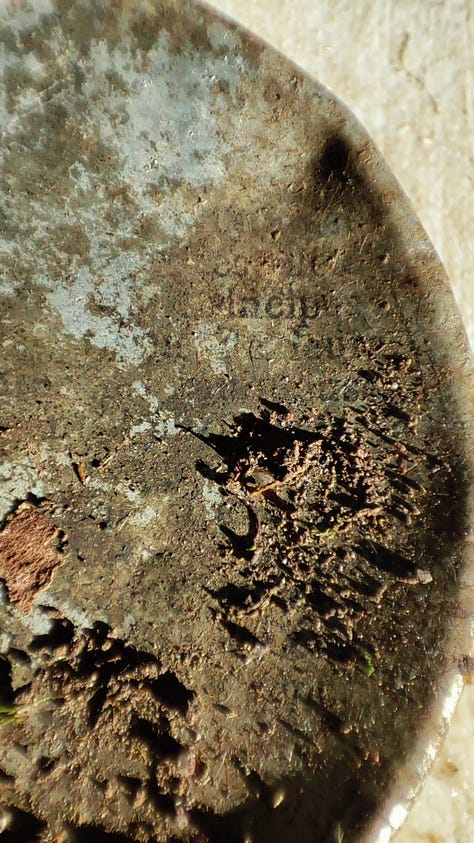


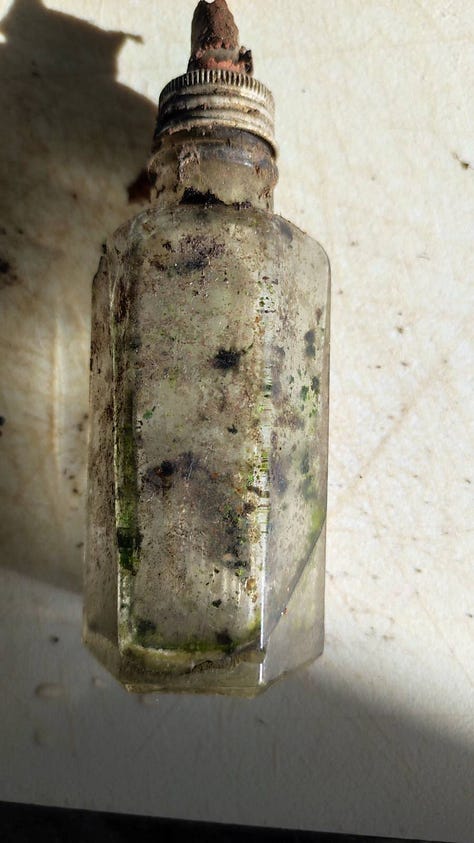
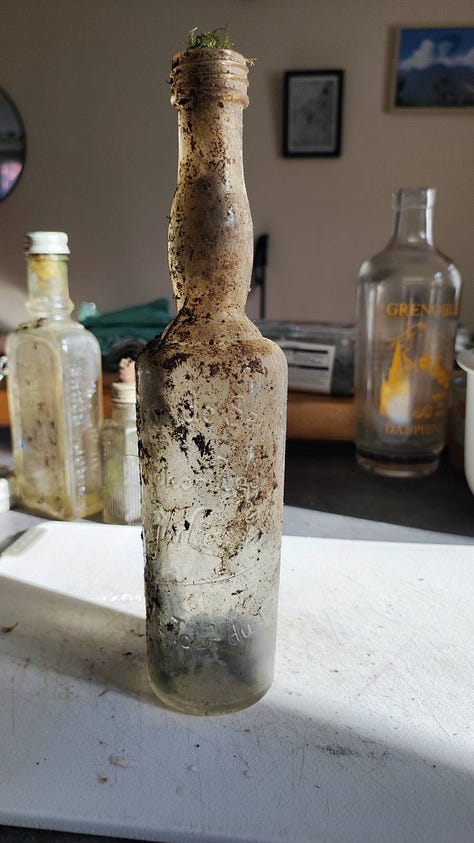
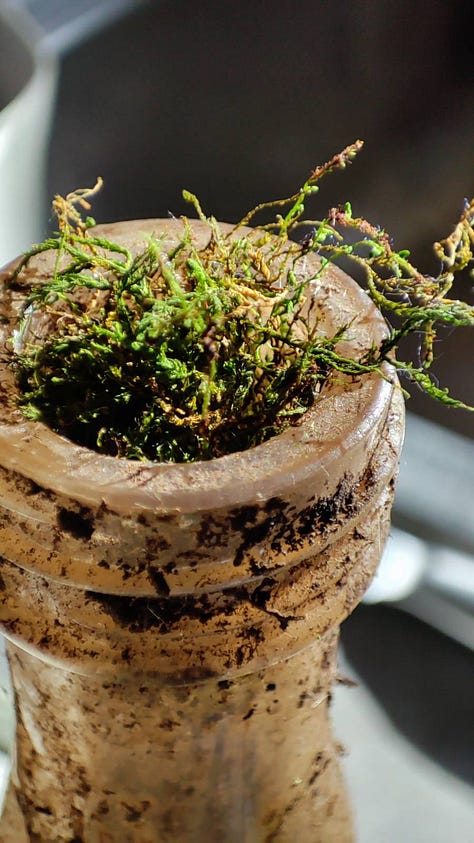

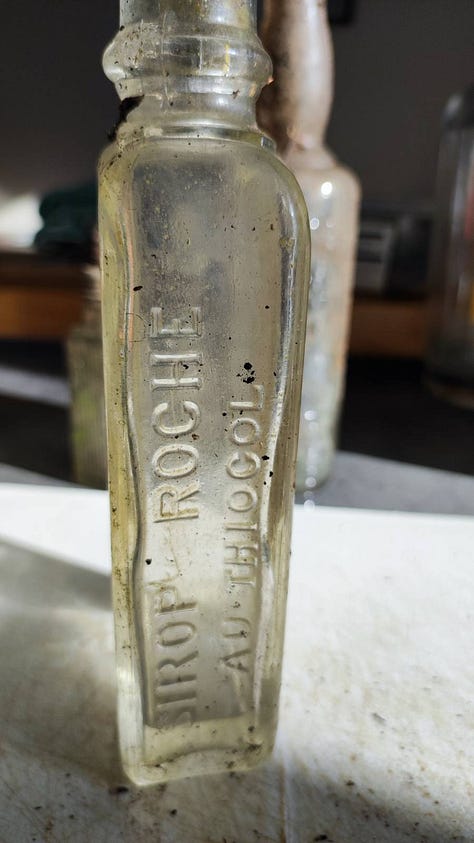
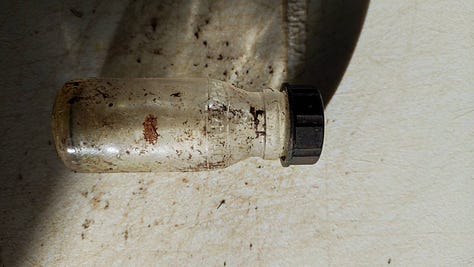
Fiction
Which leads neatly into this section.
My novel, Death In Harmony, last week reached the 29th and final chapter here on Substack. A whole novel! Serialised for over half a year! I am happy I managed to do this, and even happier with the click-through and read rate, the numbers consistently rising throughout the weeks, which was a pleasure to see.
I went through each chapter and the introduction/navigation page, adding quick links on each, so you can jump between the episodes quickly and, theoretically, seamlessly. I also added ‘skip to the story’ links, so you don’t have to scroll past the maps and introduction to each episode. If, however, you want to still want to read the story as an ebook, it is currently available on Amazon (yes, I know!) and, soon, other platforms/formats too.
The next story is going to be Dancing With Death, which features the character Flin, from Death in Harmony, and will run from November to late January or early February 2025. I shall be writing and sharing the introduction page for this story very soon.
After this, I am working hard at completing the second to last of the Tales of The Lesser Evil, which does not yet have a title. If you follow me on Notes, you might have seen my posts about Wordcountability, which is my portmanteau of wordcount and accountability, a method of posting a ‘proof of life’ screenshot of a daily wordcount, along with some notes on the story and process.
Some of those Notes are full of little snippets and thoughts on the series as a whole, as well as discussing what is next. Perhaps, once Tales is finished, I’ll collate those and share them, along with other scribbles and thoughts on the process as they might make interesting reading for someone at some point—and not everyone uses Notes.
The final story for Tales is already drafted and rewritten. It is the shortest, and seeks to place and introduce certain characters either mentioned offscreen, or hinted at in the other works, all of whom shall return in the longer fantasy trilogy (I think it is a trilogy, I don’t want it to get too unwieldy), which shall go under the series title The Lesser Evil.
The Tale I have yet to finish is shaping up to be the longest in the series, so it’ll be another novel to share, with the final Tale barely scratching novelette status. As such, at some point in the fall of 2025, I will have finished sharing The Tales of The Lesser Evil here on Substack. Eight in all, with maps. Some of the earlier stories even have carefully considered photographic accompaniment. Add to this the three translated French versions, and one anthology edition, unimaginatively called Tales of The Lesser Evil: Volume One, and that is twelve books, so far. Which is mildly ridiculous.
One reason it is ridiculous is because all those words (which I—and others, apparently—think are quite good, enjoyable tales) have mostly languished unmarketed and unloved, for some time. I am utterly hopeless at self-promotion, I feel terrible to suggest I have something to buy that, actually, you might really like.
However, as we near the end game of Tales, this is about to change. I have several ideas how to market better, in a way I will actually enjoy—several of which involve Substack.
For a while, now, I’ve also wanted to make ebooks available to download for my paying readers, creating a paywalled page and include links in the welcome email. This will be happening as soon as the books have a minor overhaul (new covers, for one, more in keeping with current genre-specific fashion). These will be available for all levels of paid subscriptions—monthly, annual, and founding.
I debated whether to only include the ebooks for the latter two subscription types as, when I mentioned this idea a while ago, I was asked something along the lines of, ‘what if someone subscribes for a month, then unsubscribes, just to download the books?’ Well, if they do, they do, but I doubt that will happen—it just seems too much work, for a start and, generally, I’ve found readers here to be decent types.
If you are reading both my fiction and non-fiction, you may have begun to notice how I weave in personal experience with the story. A while ago, I was trying to read a well-known fantasy book, a bestseller, no less, and found myself constantly torn out of the story, simply because the facts were not right. (I actually Did Not Finish this book…)
‘This is fantasy!’ you may say and, yes, it is. However, there are certain things which jar, which pull the reader away from the illusion. I can’t be alone in finding these annoying. An example I remember from that book is that of bacon. In the story, a character talks of slaughtering a pig that morning, so they can eat bacon at a feast in the evening. Even rapid-cured bacon takes longer to make than that and, honestly, slaughtering an animal and processing it takes a lot of time and effort! Wilderness, or outdoor skills are often wrong, too, which irritates me.
Of course, it can be argued that this doesn’t really matter to a story but, personally, I think it does. Attention to detail is important—if you have a character do or say something, you’d best make sure that they do or say it correctly, or someone will spot it. That is not to say you should pepper your tale with precise descriptions of making bacon, or how, exactly, to light a fire when there is freezing rain. You shouldn’t, your research will show (I’m sure we’ve all read stories where the whole falls apart quickly simply because of paragraph after paragraph full of technical details—I’m looking at you, certain thriller writers—especially white, middle-class male Americans—can you stop with the overly-long, technical names and details of weaponry, please?). Instead, you should research, then incorporate the minimum level of detail possible which, again, in my opinion, makes the whole more believable.
Which is the crucial point. A story needs to be believable. Fair enough, there may be dragons, and probably magic, but these things work so, so much better if they are deeply considered, rather than simply launched into the wordcount as a plot device. The why and the how behind a thing is essential, anything else reads as amateur. And when you world build, it is best not to overladen the story with detail (related—I could go into linguistic and etymological patterning here too, how ‘making up a name’ is a fine, fine art).
All of which leads me to the next marketing idea.
Some years ago, I was paid to create ‘content’ for a well-known travel website and I’ve created other ‘content’ (how I hate that word and idea) since and, as I crafted those pieces, it made me think—I could use this now well-known, familiar format and share all manner of fantasy worldbuilding snippets and Easter eggs, which might otherwise never see the light of day:
Seven Legendary Lost Cities
Five Monsters to Flee From (and One to Stand Absolutely Still)
Eleven Items You Must Carry Raiding Tombs
Best Hand-to-Hand Weapons of the Year
The Eight Standing Towers of Eastsea—And the Fallen Ninth
How Best to Visit the Drowned Lands
Seventeen Surprising Items to Buy in The Pit
The Worst Plagues of All Time
How Best to View the Youlbridge Maze Games
You Need to Know This One Weird Trick Before Entering The Black Pyramid
Here are Five Ways You Can Avoid the Forest People (and Two Which Will Get You Killed)
The Perfect Mask for Youlmouth Doesn’t Exi-
Five Things the City of Beya Does Not Want You to Know
Clickbait titles, listicles, content, but all from the world in which the stories I’ve shared here is set. I like this idea and I think it could be fun.
The above titles are just some I’ve made up now, off the top of my head, but similar will be winging their way out from The Crow’s Nest in the near future.
Initially, I will share one or two for free, but I do intend to paywall the majority, so that readers see these as an extra to the free novels and novellas I’m sharing and have shared. They are, after all, a bonus, so it makes sense. I want to add increased value to a subscription*, make people realise they are getting a Thing, rather than simply supporting my work. The former is far more likely to get people to subscribe and pay than the latter, after all, as much as I would rather it was not the case.
*This increased value is not just for the fiction side of my letter, but the whole. I’ll be talking more about the non-fiction extras soon.
(Our local river has been wild lately. Apologies for the vertical video!)
Finally
If you have enjoyed this, or you read Death In Harmony and liked it, but do not wish to take out a subscription, you can also send me a one-off payment, should you wish. (I have yet to ever receive a tip/payment like this, in years of including a Kofi link here and there, but I keep persisting!)
In that letter I sent out back in 2022, I included a line from Finn Family Moomintroll, by Tove Jansson, as the title:
It is autumn in Moominvalley, for how else can spring come back again?
I also ended with a paragraph from Moominvalley in November, perhaps my favourite of the Moomin books. It seems wise to do the same here, partly because it fits the time of year, as leaves fall faster and cooler air descends from the peaks around me and mist sits over the river below, obscuring, altering all—but primarily because I love it so much; it is something I reread and think upon every year, as I try my hardest to avoid any seasonal slip into mental darkness.
Until next time, thanks for reading, and do please share if you’d like.
The quiet transition from autumn to winter is not a bad time at all. It’s a time for protecting and securing things and for making sure you’ve got in as many supplies as you can. It’s nice to gather together everything you possess as close to you as possible, to store up your warmth and your thoughts and burrow yourself into a deep hole inside, a core of safety where you can defend what is important and precious and your very own. Then the cold and the storms and the darkness can do their worst. They can grope their way up the walls looking for a way in, but they won’t find one, everything is shut, and you sit inside, laughing in your warmth and your solitude, for you have had foresight.
Moominvalley in November—Tove Jansson


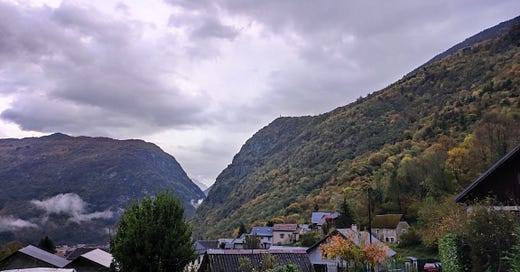


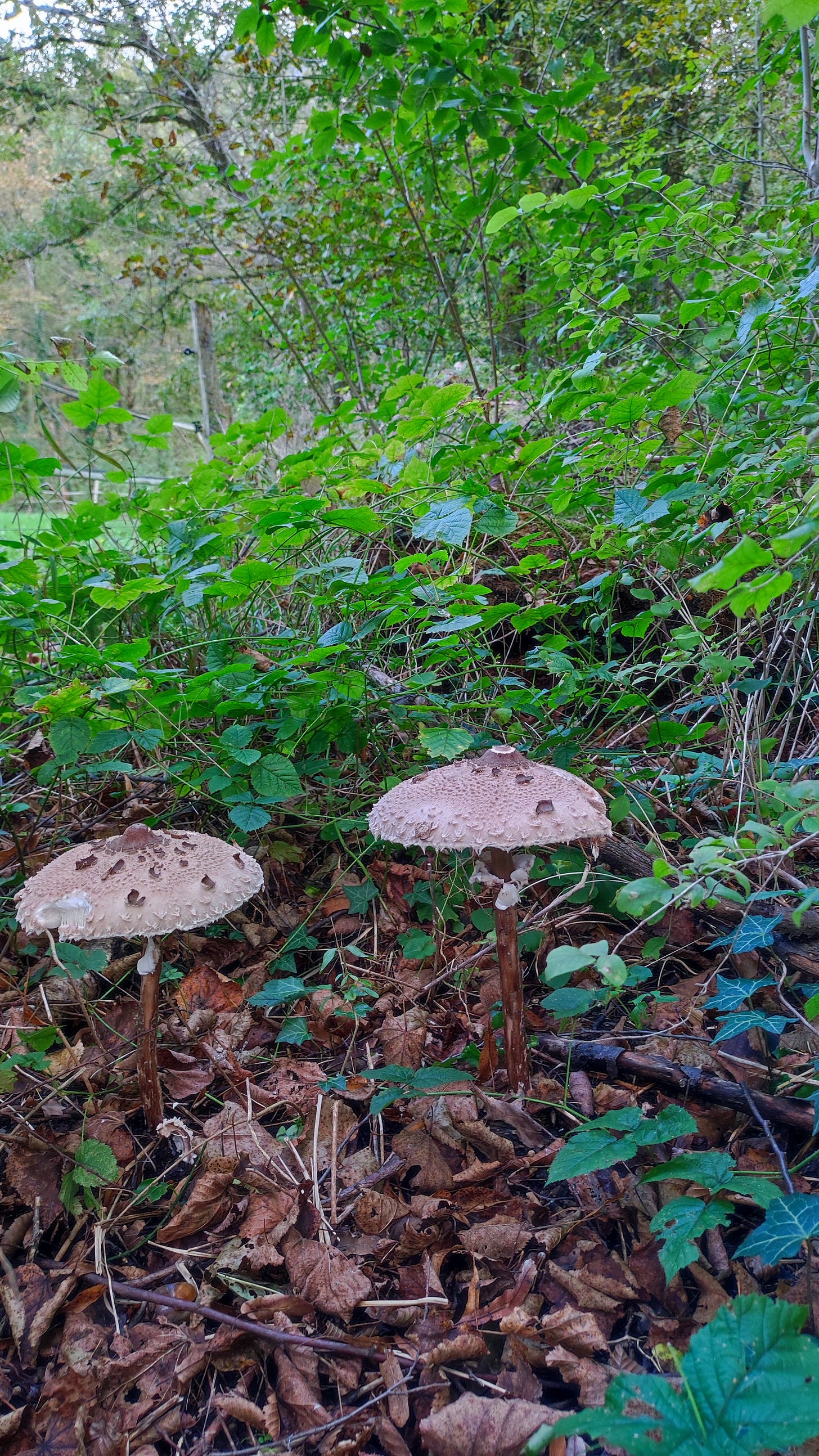
I’ve long been fascinated by how humans choose where to place their communities and how that evolves over time as experience tells them the pros and cons of specific home sites and their interactions with wind, rains, snow, streams and rivers, wildlife, and human movement ie traffic. For a while we thought technology made us immune to such concerns but we are learning slowly that it isn’t true.
Since summer life has been busy and, at times, just a little weird so I've had little time for Substack. I'll have a look at your Notes as the accountability notion sounds interesting. I'm finding if I'm just accountable to myself little gets accomplished!
Love the glass bottles. If it weren't for rubbish, there is so much we wouldn't know about our ancestors.
Looking forward to reading your new work. Do you listen to podcasts? If you do, and don't already listen to it, I can recommend The Creative Penn Podcast For Writers hosted by Joanna Penn, who is a successful indie author. Despite not being a writer, I find her show and guests really interesting. You get some ideas for your own publishing path that you may not have already thought of.